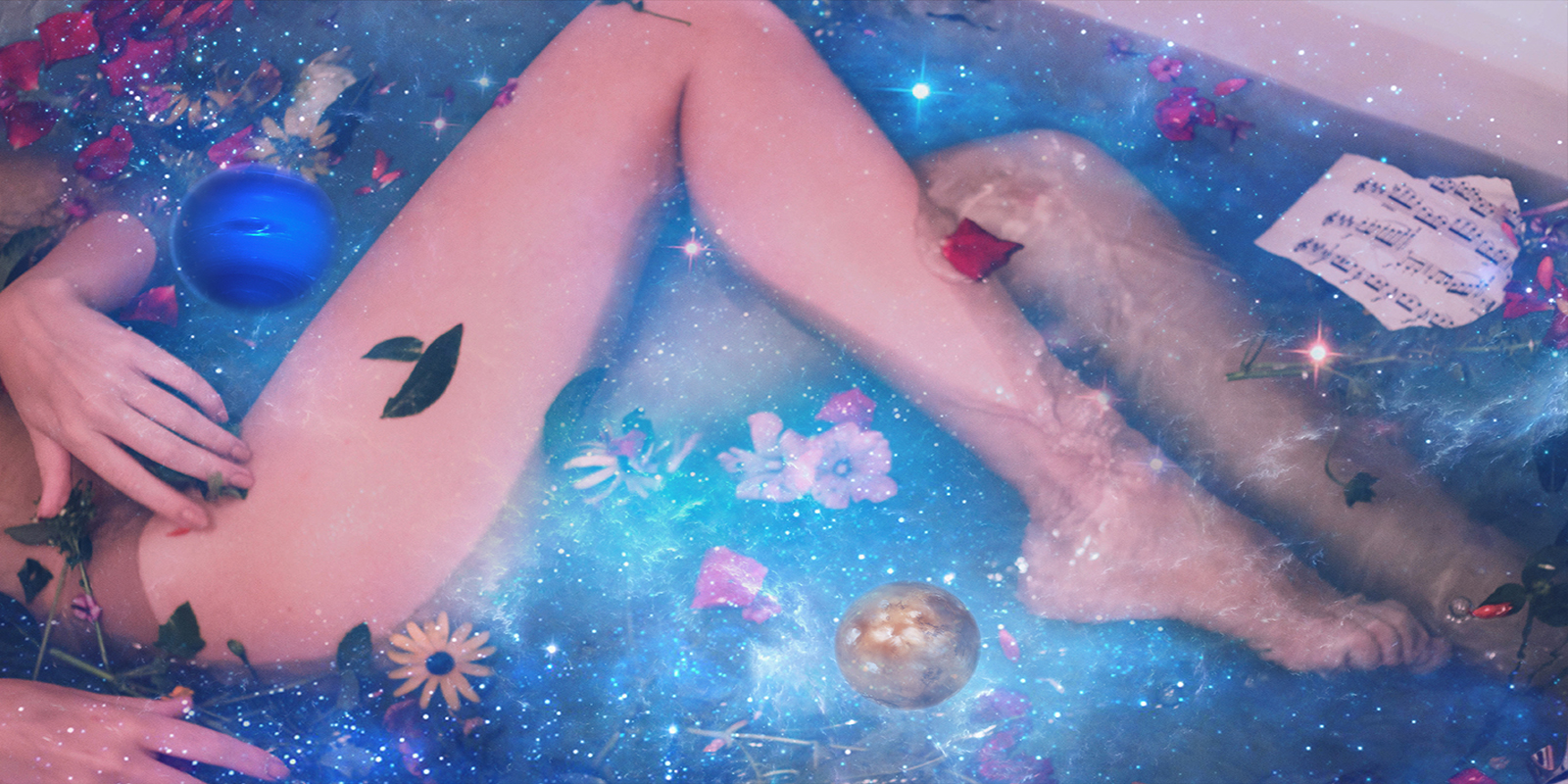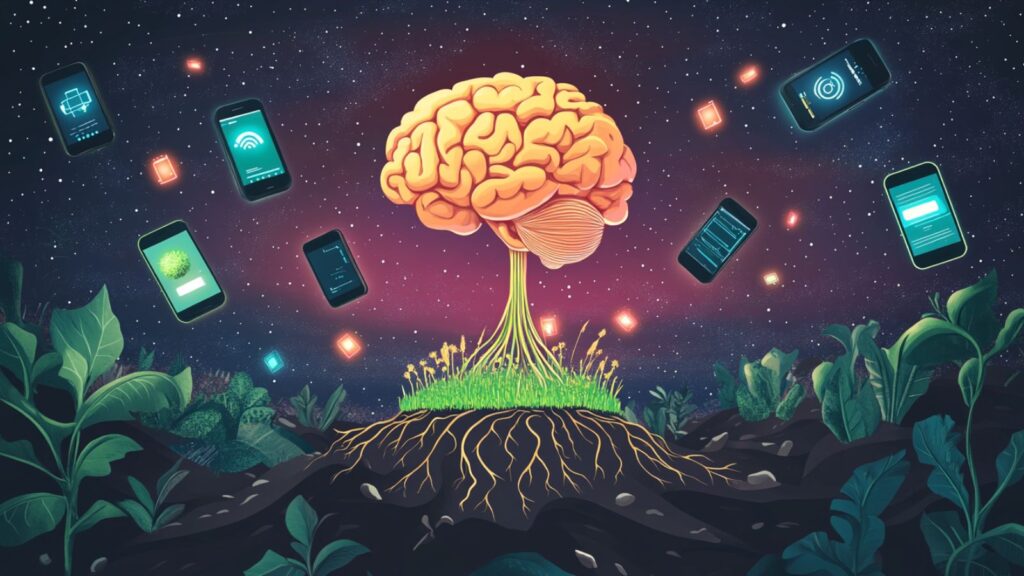This article is being republished with permission from Sasstrology.com (May 9th, 2012).
The majority of my clients, for whatever reason, have big-time questions about why their relationships haven’t lasted, why their current relationship is tanking, or what they need to change about themselves in order to “be ready” for their soul mate. Although no two astrology charts and no two people are alike, if I had to point my finger at one relationship-destroying culprit, I would feel confident blaming what I’ve come to call “orgasm addiction.”
The easiest place to spot orgasm addiction in the birth chart (although I believe this dilemma is rather universal) has to do with the contacts being made between the 1st House/Aries and Mars, and the 12th House/Pisces and Neptune.
Before diving into these controversial waters, I’d like to issue a few qualifiers. One, there is nothing inherently wrong with having orgasms. Two, there is a distinct difference between the repression/suppression of our sexual nature, and learning to withhold from orgasms in a sacred sexual practice. Three, not everyone has issues around orgasms in their relationships (though I believe many people do), and so the ideas I’ll propose in this essay should be considered carefully against the reality of one’s personal relationship history.
The Nature of the 1st House, Aries, and Mars
The 1st house, the sign of Aries, and the planet Mars all relate to the most primitive level of our existence. Aries points to the first moment of birth, the purest fire of our life force, and the big bang of creation. On the physiological level, this trio refers to our vitality: our sense of individual health and strength. On the psychological level, they all point toward our sense of self-hood, our courage, our willpower, and our most primitive sexual/creative drive.
The 1st house/Aries/Mars trifecta is intimately related to romance, relationship, and sexuality. Without these energies we wouldn’t have access to the power and impulse needed to engage intimately with another human being. We wouldn’t have chemistry and spark. We wouldn’t have the desire to create something new. The 1st house, Aries and Mars refer to the big bang, orgasmic energy we need to create anything new in our lives. Without this healthy life force, we literally become ill and diseased. Without this in our relationships we lose the “spark” or the newness of our connection. In short, if we want flaming hot love lives, we need to make sure that these energies are being taken good care of.
The Nature of the 12th House, Pisces, and Neptune
The 12th house, the sign of Pisces, and the planet Neptune all relate to the highest dream of the zodiac: the manifestation of our ideals and the attainment of perfection. Pisces points to the manifestation of heaven on earth: the place where the singular, spiritual realms (the upward- and eastward-moving Piscean fish) become fully integrated within the dualistic, material world (the downward- and westward-moving Piscean fish). The reality of achieving perfection has traditionally been reserved for avatars, saints, ascetics, gurus, and mystics.
If the zodiac story starts with Mars and the creative impulse, then the creative impulse is thought to end, or complete itself, in the attainment of enlightenment or perfection. Without the energies of the 12th house, Pisces, and Neptune, we wouldn’t have any reason or call to create in the first place. Even if heaven or enlightenment is never actually obtained, even if it’s not a “real” possibility, we need ideals and visions (Neptune) to aspire toward with our creative life force (Mars). In romance, we need the ideal of the perfect union and the “happily ever after” to hurtle us forward into a new partner, a new love story, and a new attempt at the ideal state of romantic bliss.
The Nature of the Orgasm Addiction Cycle
At the beginning of our relationships, inspired by a vision of the perfect union (Neptune) or the perfect state of sexual bliss (Neptune) we throw ourselves head first (Mars) with great passion right into one another (Mars). The result, in the beginning, is what we call “the honeymoon period.” Conquest and ideals blend immediately and there are great amounts of newness and happiness. If this were the end of the story, we would all be blissed out and in love, and I would not see so many clients whose love lives suffer so greatly. Unfortunately, this honeymoon period ends relatively quickly (for some it lasts longer than others), tensions mount, the passion often fades, tensions rise, and we begin to despair. We wonder, “What happened? Things were going so well! Why does this always happen to me? I must have bad karma!”
One age-old mystical answer–that often gets swept under the rug–suggests that it is our attachment to orgasms during intercourse that keeps us falling in and out of love with new partners.
When we orgasm, we are depleting our life force and vitality. Through ejaculation and the heaving, energetic releases of orgasm we lose life force. The reason we lose life force is very simple: the explosion is designed to create a new life form. For men, especially, habitual orgasms can be incredibly hard on the adrenals and the kidneys. In the art of Chinese medicine and acupuncture, men are encouraged to orgasm at certain spaced out intervals so as not to drain their life force too often, which is thought to create stress and disease in the body. After an orgasm there is a certain period of time that is needed for the body to recover its sexual “charge.” Often, we do not take the time and give ourselves the space to heal and rebuild our sexual energy. In the beginning of our relationships, the newness of the dynamic helps us to recover our sexual charge more quickly. However, as time presses on and familiarity sets in, the negative results of orgasm dependency start showing up.
The Signs of Orgasm Dependency
The first sign of orgasm dependency is irritation or clinginess, in extremes. When our life force is drained repeatedly, without recovery time and without the inclusion of prolonged bonding behavior during intercourse, we become agitated. We can either project this agitation onto our partner, or we can internalize it. Projected, we can only see the most irritating qualities in our partners. Where they were once idyllic and perfect, now they are less attractive and even aggravating. For some people, even the touch of a partner when the life force is drained can bring up strong feelings of resentment and irritation. On the other hand if the depletion of the sexual energy is internalized, we can feel needy, insecure, clingy and jealous.
In my counseling practice I’ve noticed (although it is sometimes the opposite) that women internalize the feeling of depletion whereas men project it. This creates the typical post-sexual exhaustion scenario: man seems distant, irritated, and unattracted while the woman seems clingy, insecure, and possessive. Although the manifestations are very different, they are both symptoms of the depletion of sexual energy in each partner. Oftentimes this dynamic leads to intense fighting, which in turn arouses the passions again and enables another round of vigorous intercourse. However, after time, the compulsive sexual dynamic wears down to the point where the relationship needs something new (pornography, an open door policy, etc.) and, if it’s not found, cheating often happens or the relationship simply ends.
The reason “something new” is needed is because that “something new” is what ignites the conquest drive (Mars) toward the perfect fusion (Neptune) all over again. The problem with all of this is simple. These destructive relationship behaviors demonstrate an addiction to the Mars/Neptune impulse rather than a constructive fusion of their archetypal functions toward healthy ends.
In our relationships, orgasm addiction can be the beginning of the end. When we get fixated on the momentary bliss of orgasm instead of the circulating of affection, touch, breath, and intimacy, we can quickly objectify each other. Instead of building intimacy between two people, we use each other to manifest our ego ideals and then quickly become disenchanted when we find ourselves not really knowing or loving each other, and not having accomplished anything. Such is the nature of the ego who does not know how to serve the higher self!
Traditional sacred sexuality encourages real intimacy instead of just the rush toward orgasm. Couples are encouraged to place more emphasis on the circulating, sharing, and slow/playful exploring of each other’s bodies, minds, and spirits during intercourse. In this kind of lovemaking, the emphasis is placed on bonding rather than building or rushing toward orgasm (and hence the completion and shutting off of the sexual charge). Orgasms may be had occasionally, but primary attention is not placed upon them. Orgasms should be had sparingly, if at all. Some even say that if you’re not planning on creating a life, then don’t orgasm. This is perhaps a more conservative sacred sexual philosophy.
Recently more books are being written that suggest that our fixation on orgasm can be as addicting and potentially health-harming as nicotine and alcohol addiction. When couples engage in orgasmless intercourse, entering each other peacefully and slowly, circulating and exploring intimacy without climax for long periods of time, and then disengaging slowly, intimacy is thought to be built rather than bodies being depleted. Practicing intercourse regularly without orgasm is thought to lead to heightened sexual activity, deeper and subtler levels of intimacy, bio-rhythms merging more fluidly, and the overall reduction of stress.
The Nature of Mars/Neptune Contacts
From the astrological point of view we need to make sure that our creative energy (Mars) is being circulated and taken care of rather than exhausted habitually, if we want to achieve our dreams (Neptune). Aries often lacks the stamina to follow through or the patience to create long-lasting results. If we want to reach our highest ideals (Neptune) in partnership and romance, then we need to learn how to keep our creative energy (Mars) alive and well. Interestingly enough, Mars/Neptune contacts have traditionally referred to sacred sexuality as well as the drastic impulse to lose oneself entirely. Mars/Neptune can refer to martial arts, dance, and tai-chi, as readily as sex and drug addiction.
The nature of Mars/Neptune is that of the first and last sign of the zodiac trying to understand each other. How do we use the most basic, excitable, journey starting creativity (our sex drive/Mars) to make our biggest and longest-lasting dreams come true (Neptune)? The answer: through circulating our creative energies we slowly and patiently build lasting results that will most closely resemble our dreams!
Here is a list of various ways that Mars/Neptune contacts manifest in the natal chart:
Hard Aspects between Mars and Neptune
The conjunction, opposition, and squares between Mars and Neptune all reflect the potential for sacred sexuality to be realized or explored very easily in a relationship. The same angles can denote potential struggle with orgasmic addictions. A wonderful first step for clients who struggle with their sexual impulses, addiction and/or constant relationship failures is to encourage a martial art, dance, breath practice, or yoga. Oftentimes, before we can open to sacred sexuality, we need to learn how to use our life force (Mars) in a more fluid and circulatory way (Neptune).
? Aries ruling the 12th or Pisces ruling the first often plays out like a hard aspect between Mars and Neptune.
? Mars in the 12th or Neptune in the 1st also tend to play out like a hard aspect between Mars and Neptune.
Soft Aspects between Mars and Neptune
Although many astrologers insist that trines and sextiles are “easier” than hard aspects, I’ve observed just the opposite in my practice. Soft aspects are often harder to uncover or address with a client because they are more unconscious and/or more entangled in each other. Trines and sextiles between Mars and Neptune often appear as a family or ancestral connection to sacred sexual practices. At the same time, they can often appear as family or ancestral connections to orgasmic or substance addictions.
On the whole, any aspects being made–hard or soft–show the exact same tendency. While there is an incredible ability to use one’s sexual, creative impulse to create or pursue dreams, there is also a tendency to drain one’s creative energies for quick-fixes and short-lived, explosive results.
Final Thoughts
It’s important for me to share that I am someone who has a natal opposition from Mars to Neptune. Early on in my life, I struggled with sexual and substance addictions until I found my way onto a spiritual path and began practicing yoga, meditation, shamanism, and sacred (orgasmless) sexuality. While these practices have been vital for the health of me and my partnership, I recognize that these ideas are not for everyone.
On a larger scale, I am interested in the idea that the impatient, impulsive, and desirous side of this Mars/Neptune archetype is perhaps in part responsible for the overpopulating of our planet, the destruction of sacred, monogamous behavior, and the increase in orgasmic thinking, advertising, marketing, and indulging in general. I wonder what would happen if instead of staying attached to “quick fixes” and “getting off,” we learned to circulate, hold and share our sexual energies?
For More information about Nightlight Astrology Please Visit Us at www.nightlightastrology.com
Recommended Reading:
? Cupid’s Poisoned Arrow: From Habit to Harmony in Sexual Relationships by Marnia Robinson
? Wired for Intimacy: How Pornography Hijacks the Male Brain by William M. Struthers
? The Karezza Method: Magnetation, The Art of Connubial Love (Forgotten Books) by John William Lloyd
? The Pleasure Trap: Mastering the Hidden Force that Undermines Health & Happiness by Douglas Lisle
? The Way of the Superior Man: A Spiritual Guide to Mastering the Challenges of Women, Work, and Sexual Desire by David Deida














